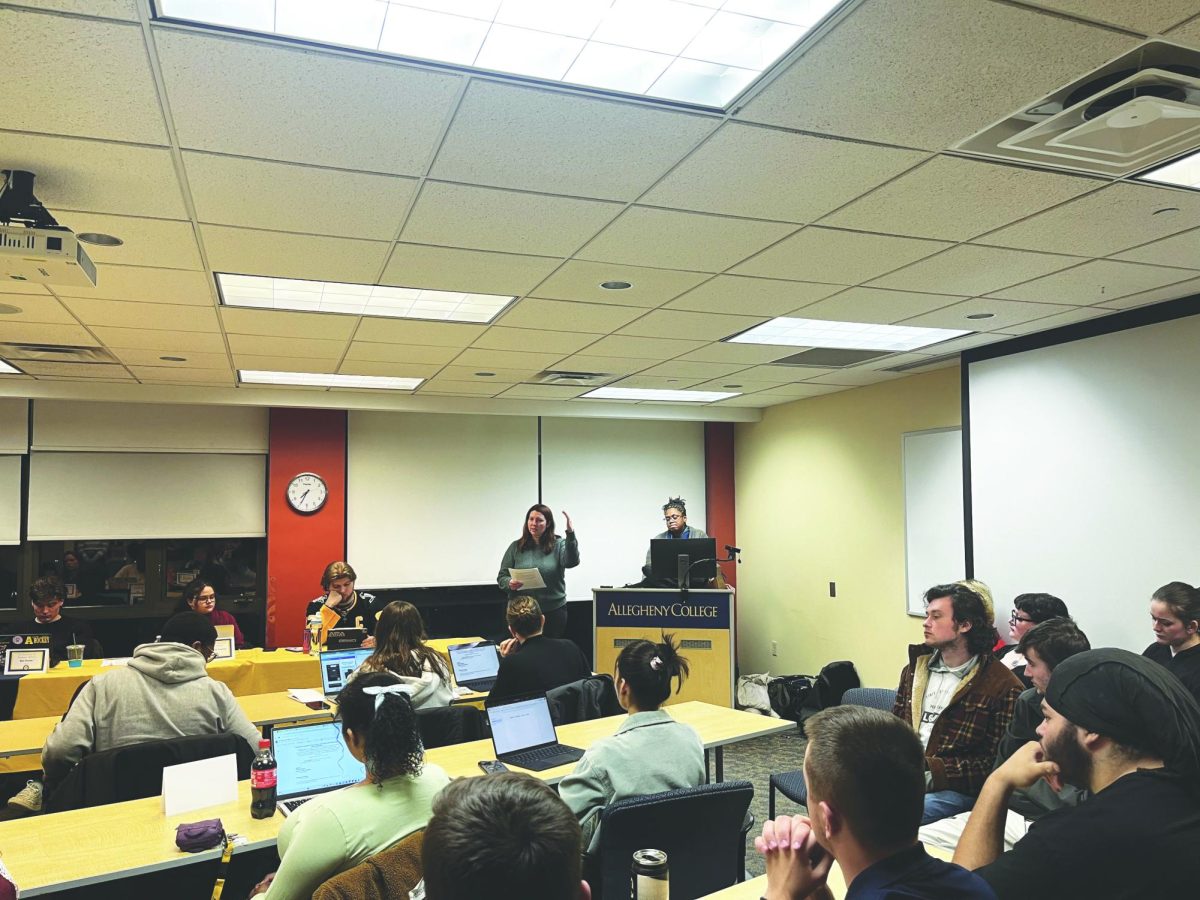By DANI HICKS
Contributing Writer
[email protected]
A recent UCLA study found that only 40 percent of American college students entering as science or pre-medical majors actually graduate with degrees in science, but Allegheny’s retention of the science students exceeds this average at 68 percent, according to data from the Office of Institutional Research.
The path to earning a degree in the sciences has its fair share of challenges, said Ryan Bridle, ’12, a neuroscience and psychology double major.
“Classes change, profesosrs change, things get more conceptually demanding, and in order to keep up with that, you need to grow and develop and adapt according to the material, or you’ll get left behind,” Brindle said.
The popular appeal of entering college as a science major is the prospect of a high-paying career. In a 2011 survey conducted by Pay Scale, the 20 highest-paying college degrees in STEM fields: science, technology, engineering and mathematics.
“I think that a Wall Street banker job would be more popular than a scientist, and that’s a real problem,” said professor of chemistry Shaun Murphree.
According to Murphree, the problem is not as simple as poor lectures or lazy students.
“Students will be more attracted to chemistry if it is applied to the real world,” Murphree said.
As a freshman, Sasha Miller, ’13, came to Allegheny to major in international studies, while satisfying the pre-med requirements. One day while sitting in her chemistry 110 course, she realized that the path she had chosen was not right for her.
“I wasn’t happy because I wasn’t doing something that made me happy. I have always liked English classes and have been writing poems since I was a little girl so, I girugred I’d change my major and do something I like.”
Miller is now an English major on the creative writing track with a minor in political science.
“I still feel like I can help people but just in a different way,” Miller said.
Professor of biology Christine Donmoyer teaches organismal physiology and ecology, an introductory level Biology course. With such a large volume of students entering their first year interested in one form of science or another, some introductory courses naturally partition out those who realize they do not want to pursue that career, said Donmoyer.
“If you are motivated enough, there is no major you can’t do. But you have to be willing to put the time in and develop those study skills that are necessary. I think that in the introductory courses, a lot of students don’t have those skills,” Donmoyer said.



